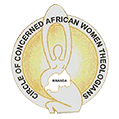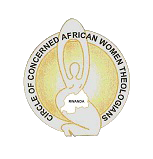The Circle of Concerned African Women Theologians (henceforth Circle), is a Pan-African academic association of women researching, publishing and interacting with communities on issues relating to religion/theology – all religions resident in the African continent and affecting women of African descent in the various African diasporas.
Founded in 1989 under the vision of Mercy Amba Oduyoye, the Circle’s main agenda was, and still is, to investigate how religions affect women’s lives and how they can be interpreted for the empowerment of women and their communities. The Circle, therefore, carries out academic research that seeks to have transformative impact on the lives of African women and the communities they inhabit, indeed the world they inhabit. The agenda of the Circle makes it a gender-centered, interreligious, interdisciplinary, intersectional and transformative association. It carries gender-centered studios on religions’ content and impact on women, children, economics, race, ethnicity, health, environment, among others.
The Circle research is carried out through a flexible structure that consists of continental, regional, country-based, and institutional based coordinators and research leaders who mobilize members and mentor young scholars along the agreed theme of research. While an African-wide theme is chosen, regional and national Circle chapters have the freedom to shape their research focus according to their contexts and interests. This structure ensures that research activities continue at various levels in the continent (and its diasporas), addressing issues that are regional and country specific, while maintaining a shared continental agenda. Leaders (coordinators and research leaders) may initiate/encourage a research project, but individual members are equally free to initiate a research project of interest and invite members to participate. The Circle research structure also involves calling a Pan-African Conference every seven years (now five) on an agreed conference theme, whose papers are thereafter upgraded, edited and published.
The first research period (1989-2002) of the Circles was characterized by building its capacity and interrogating how religions construct and impact women as well as imagining ways re-interpreting religions for the empowerment of women. In the second research period (2002-2019) the Circle focused on Religions/Theology and HIV/AIDS as well as capacitating faith-based communities for constructive response, given the gravity of the HIV/AIDS epidemic to the African continent and to African women and children, in particular. At its recently ended African wide conference (July 1-5, 2019), the Circle decided to adopt the them of Religions/Theology, the Environment and Sustainable Development Goals. This theme was building on the conference theme; namely Mother Africa; Mother Earth and Religion / Theology / Ethics / Philosophy. Eight volumes are being co-edited form the conference proceedings.

